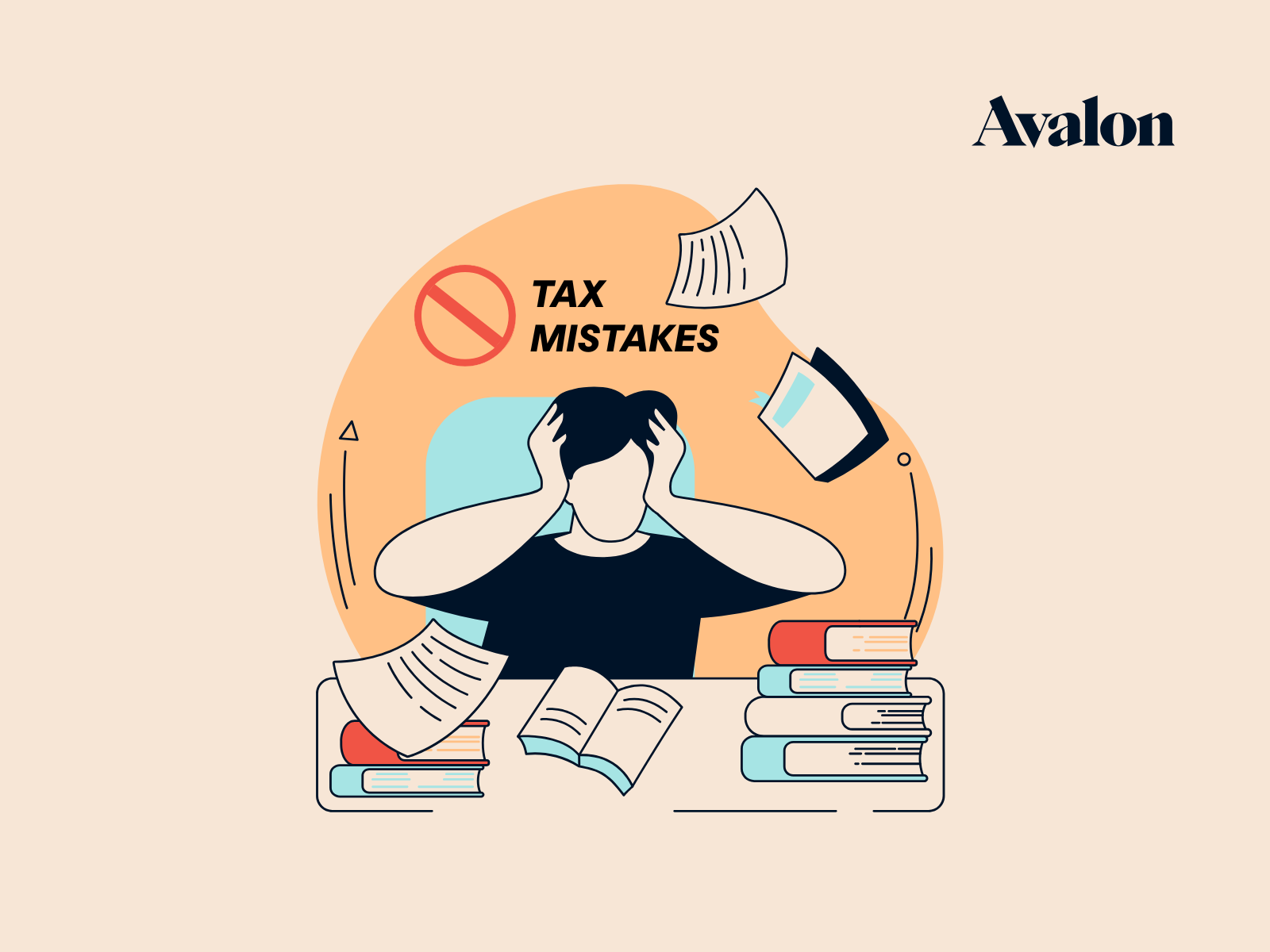Step 2 - Register Your Business
We’re continuing to ramp up to the launch of our Seven Day Business Starter course.
In this article we’re bringing you step two of the process - registering your business.
Last week we wrote about planning your business, and over the next few weeks we’ll continue to outline the seven steps you can take to start your business and make your first sale.
You can find out more about the Seven Day Business Starter course, including a pre-launch discount code specifically for readers of this blog.
In this article, we’re going to look at how to choose the type of business entity and how to actually go about registering your business.
Let’s get started!
Three Types of Business Structure
Before we actually get into registering your business, we need to decide what type of business entity you’ll be choosing.
There are three main business structures that we discuss in the Seven Day Business Starter Course; there’s the sole proprietorship, partnership and corporation.
Sole Proprietorship
First up, Sole Proprietorships. This is the simplest structure and it’s basically just you, as an individual, running the business.
You are fully responsible for all debts and obligations related to your business and all of the net income from the business flows directly to you to be taxed on your personal tax return.
It also has some of the lowest administrative burden and upkeep of the three options.
Partnership
Next, the Partnership. Think of a Partnership as a Sole Proprietorship but with two or more people. Here, you and your partners share the responsibilities, profits, and losses of the business.
Corporation
And lastly, there’s the Corporation. This is a legal entity that's separate from its owners, providing the highest level of protection against personal liability.
However, it also involves the most paperwork, upkeep and regulation.
Which Business Structure to Choose
This is one of the most common questions we get from new business owners: “should I incorporate my business?”
Unincorporated Business
Whether you’re running a sole proprietorship or partnership, there are a few common pros and cons to having an unincorporated business.
Pros
- Easy to Start - An unincorporated business is easier to start. In many cases, all you have to do to start a sole proprietorship is just begin selling your product or service.
- Lower Cost - Setting up is generally inexpensive and you don’t have to worry about legal fees or more expensive upkeep and tax filing costs that come with a corporation.
- Easier Upkeep - There are less hoops to jump through to keep the business compliant. Tax returns are simpler and there are no annual legal filings to do.
Cons
- Personal Liability - You are personally responsible for all the business's debts and liabilities. This is not necessarily the case with a corporation.
- Limited Funding - Banks and investors might be less likely to invest when the business is indistinguishable from you as an individual.
- Missed Tax Planning Opportunities - You have less control over the timing of your income compared to a corporation. You also don’t have the same opportunity for tax free gains when you sell your business.
Incorporated Business
When you run your business as a corporation, there is more legal protection and a few tax advantages compared to a sole proprietorship or partnership.
Pros
- Reduced Risk - Corporations can provide a layer of security against personal liability.
- Tax Savings and Deferral - In some situations, corporations can provide tax savings or tax deferral.
- Lifetime Capital Gains Exemption - The LCGE may allow you to sell your Corporation at a gain of up to $971,190 without paying any tax.
Cons
- Incorporation Costs - There are higher costs involved when starting a company compared to starting a business as a sole proprietor.
- Ongoing Costs - The ongoing administrative costs of a company are typically higher than a sole proprietorship. Typically these are higher costs for legal and tax filings.
- Administrative Burden - The more complex legal and tax filings each year means a higher administrative burden for corporations.
How to Decide
There are a few questions you can ask yourself when considering which type of business entity to choose.
For Considering a Corporation
- Do you plan on building your business into something that is more than just self-employment?
- Does your business have the potential for legal liability?
- Do you expect your business to earn more net income in a given year than you might use personally?
- Do you plan on, or would you like the option of having others invest in your business?
- Do you plan to sell the business in the future?
If you answered yes to any of these questions, then incorporating might be a good option for you.
For Considering a Sole Proprietorship or Partnership
- Is the main purpose of your business so you can be self-employed, as opposed to building a business that involves others?
- Does the extra annual upkeep cost (starts around $3k) outweigh the potential benefits of operating as a corporation?
- Do you expect to have significant losses in the first year or years of the business? These can potentially be used to reduce your other personal taxes if unincorporated.
- Is simplicity in bookkeeping and taxes a priority for you?
- Are you just testing the waters for a business concept and unsure about its long-term viability?
If you answered yes to any of these questions, then a sole proprietorship or partnership may be right for you.
Consider each factor and weigh the pros and cons. It’s also helpful to chat with your accountant and lawyer if you’re still unsure of the best route.
How to Register Your Business
Once you’ve decided on a business structure, your next step is to actually register your business entity.
Depending on your business structure and location, there are a few different ways to get registered.
- Incorporate through a lawyer
- DIY incorporation
- Use a Business Registration Service
Register Using a Lawyer
Registering your business or incorporating through a lawyer is the more traditional method of setting up your business entity. This is the highest cost, but also provides the most support and answers to your questions.
DIY Registration
You can also complete the registration or incorporation process on your own through your local government body. This can be done online without assistance from a lawyer. It’s the least expensive option but leaves the most opportunity for error.
If you do a Google search for “register my business in [MY LOCATION]” you’ll find the applicable online registration offering for your province or territory.
Use a Business Registration Service
Registering or incorporating your business with a service like Ownr falls somewhere in the middle when it comes to support. You get a guided registration process and access to Ownr’s support.
The standard cost of registering with Ownr is slightly higher than the DIY option, but can actually become the least costly option if you take advantage of some discounts and offers that they have available.
To start with, our partner link for Ownr gets you 20% off the initial cost of registration or incorporation.
In the Seven Day Business Starter Course we take you through the registration process using our real-world example. We actually started a new business just for the purpose of demonstrating everything in the course.
Other Registrations
Once you’ve brought your business entity to life, there are a few other registrations to be aware of.
Register Your Name
First up we want to make sure the name that we choose for our business isn’t taken already.
There are two national databases that cover most of the jurisdictions you may want to search in Canada.
These are “The Canadian corporate names and trademarks database” and “Canada’s business registries database.”
If you’re using a lawyer or a registration service like Ownr, these searches and name registration are done for you as a part of the registration process.
If you’re doing a DIY registration, then take a moment to search the web and use the databases linked above to find if your name is already taken. Then proceed with registering your business name.
Registration of trade names is a provincial or territorial responsibility, so you’ll want to use the applicable registry for your location.
A quick Google search for “Register a business name in MY LOCATION” will set you on the right track.
Get a Business Number
Next, we want to make sure that we have a business number with the CRA.
A Business Number is a 9-digit number that is unique to your business.
You’ll need a business number when you incorporate a business in Canada.
And you’ll also want one if you’re running your business as a sole proprietorship that needs to open a program account with the CRA. For example if you need a GST/HST or Payroll account.
Good news for incorporated businesses is that you automatically get a business number when you incorporate in Alberta, BC, Manitoba, New Brunswick, Nova Scotia, Ontario, PEI, Saskatchewan, or Federally.
Otherwise, you’ll need to use the Business Registration Online platform to get a business number.
Business Licenses and Permits
The next step is to understand any required business permits and licenses.
If you're in certain types of businesses like food services, construction, or if you're opening a physical store, you may need specific permits or licenses.
And even if you think your business might not need a license or permit, it's better to check. Some cities require all businesses to have some kind of license.
There’s a fantastic tool you can use to figure out which permits and licenses you actually need.
Navigate to BizPaL where you can find the permits and licenses you might need, based on your location and business type.
All you have to do is enter your location and business type and review the results.
You'll get a list of permits and licenses with information on mandatory licenses and also potential other registrations to look into.
Sales Taxes
You may also need to register your business to collect GST/HST or provincial sales taxes.
Understanding when and how to register is covered in the Seven Day Business Starter Course.
You can also find more info on our blog about registering for sales taxes.
Payroll
If you plan on paying employees, you’ll also need to register your business for payroll and the applicable workers compensation organization for your province or territory.
This is all covered in the course in detail but we also offer lots of free information about payroll on our blog.
Seven Day Business Starter Course
We cover all of this information in detail in the Seven Day Business Starter Course. Check out the link for a pre-launch discount code that you can use once the course goes live.
And keep an eye out for the next article in this series where we take you through all of the steps needed to set up your small business accounting.












